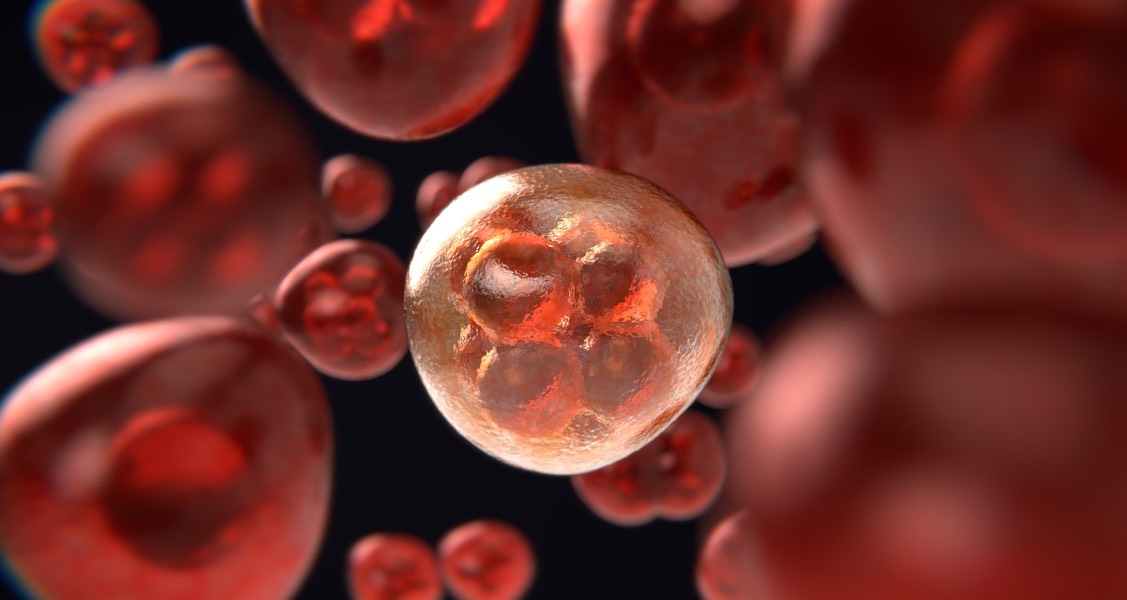Breathe Easier: Inhaled Immunotherapy Could Help Fight Canine Cancers
By: Ian Nicholson | Sep 12, 2022

Cancer diagnoses can be devastating for pets and their human guardians. Researchers have discovered that a small, yet mighty protein called IL-15 may be an important key to fighting cancer in dogs.
What Is IL-15?
Interleukin-15 is a protein. Specifically, it’s a cytokine — a type of small protein that helps cells communicate. The American Cancer Society explains that cytokines like IL-15 manage the activity and growth of the body’s immune cells. Mammals like humans, dogs, and cats produce interleukins from their white blood cells.
What Does IL-15 Do?
Interleukin-15 handles immune cell growth and signaling. It performs two functions to help coordinate immune system responses to infections and tumors:
- Activating chemokines, smaller proteins that direct white blood cell movement
- Prompting T-cells and natural killer cells to do what they do best — fight infections
What Are Natural Killer Cells?
Most lymphocytes are T-cells that directly target infections or B-cells that make antibodies. NK cells are a different type of lymphocyte: large white blood cells with enzymes that destroy tumor and virus-infected cells. While both NK ad T-cells fight cancer, they act in two diverse ways:
- NK cells act on their own: They can detect and kill cancerous growths.
- T-cells are summoned, responding to antigens for specific kinds of cancer.
Natural killer cells arrive first at the site of a tumor. After they unleash their destructive enzymes, T-cells show up later to continue the assault.
Why Is IL-15 Such a Big Deal Now?
Scientists have explored IL-15 for cancer treatment in the past. During clinical trials, subjects received it through IV lines or injections. However, it can be toxic when administered in large doses. Both humans and non-human primates are at risk for side effects like weight loss, fevers, and liver damage.
IL-15 still offers promise as a potential treatment of cancer in dogs. Could concentrated delivery at tumor sites avoid potential toxicity risks? University of California at Davis researchers sought to answer this question with clinical trials of IL-15 in dogs with pulmonary cancers. Their phase one study yielded promising results: Several dogs’ tumors either shrank or stopped growing.
How Was IL-15 Tested in Dogs?
Between October 2018 and December 2020, UC researchers administered IL-15 to 18 dogs with pulmonary cancers that had spread beyond their lungs. When the study began, each dog inhaled 10 microgram doses in mist form twice per day. The researchers slowly increased the doses to gauge effectiveness and safe dosing levels. Eventually, they discovered an upper limit dosage of 50 micrograms.
What Effects Did IL-15 Show?
The UC Davis researchers reported their findings to the Journal for ImmunoTherapy of Cancer in June 2022. They noticed some progress after only 14 days of treatment. Seven of the dogs experienced positive outcomes, resulting in a benefit rate of almost 39%:
- Two dogs’ tumors decreased significantly in size.
- Out of these two dogs, one’s cancer went into complete remission.
- Tumor growth stabilized in five of the dogs.
What Happens Next?
UC Davis oncologist Robert B. Rebhun confirmed that more studies are needed on IL-15 and cancer in dogs. It could be combined with other therapies that harness the immune system’s cancer-fighting potential. Doing so “may result in additive or synergistic responses,” Rebhun said.


Disclaimer: healthcareforpets.com and its team of veterinarians and clinicians do not endorse any products, services, or recommended advice. All advice presented by our veterinarians, clinicians, tools, resources, etc is not meant to replace a regular physical exam and consultation with your primary veterinarian or other clinicians. We always encourage you to seek medical advice from your regular veterinarian.

